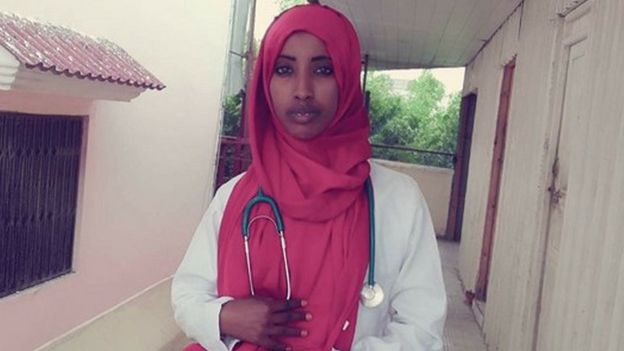There are no slogans claiming “We Are Mogadishu”
Mogadishu isn’t getting as much attention as it should.
What usually happens on social media after a terrorist attack? A hashtag circulates beginning with “Pray for…” or “I am…”. Users share images of the carnage, and people express an equal measure of sadness and defiance.
But after deadly attacks on Saturday in Mogadishu, which claimed at least 281 lives, some social media users have been asking where the solidarity for Somalia is, and why there are no trending hashtags like those which have emerged after attacks in the US and Europe.
The usual reason, no doubt – fewer of us have been there, fewer of us know people there or from there, fewer of us have associations with Somalia of any kind.
Saturday’s truck bomb was the deadliest terror attack in Somalia since the Islamist al-Shabab group launched its insurgency in 2007. Some bodies were burnt beyond recognition.
Of those who were identified, one of the victims was Maryam Abdullahi, a medical student who was due to graduate the next day.
Her father had flown to Mogadishu to attend her graduation but instead witnessed her burial.
Anfa’a Abdullahi
That’s one doctor who won’t be providing care to Somalis.
Khaled Beydoun a professor of Law in Detroit, criticised the depth of media coverage in a social media post which has been shared hundreds of times on Facebook and more than 6,000 times on Twitter.
“I hate comparing human tragedies, but the mainstream media makes you do it,” he posted on Facebook. “There are no slogans claiming ‘we are Mogadishu’ and no catchy images floating around social media demonstrating solidarity.”
He’s not wrong. More from his post:
Listen, the number of people killed in Somalia yesterday was more than 10x more (230+) than the number killed in the terror attack in Manchester in May (22). 230 to 22.
Yet, there are no slogans claiming “We Are Mogadishu” and no catchy images floating around social media demonstrating solidarity. Most shamefully, there is little mainstream media attention documenting the ungodly death and devastation in Somalia’s capital, and certainly no television specials or emergency fundraisers providing aid. None and none and none.
We get it – white and Western, European and American victims ‘merit’ the media attention and the public alarm it spurs, and Black and foreign, African and Muslims do not. This is institutionalized within mainstream media, social media and elsewhere. And the implicit message rendered by this lack of coverage is that that this brand of terror is “indigenous and common” to places like Somalia, African and Muslim-majority countries at large.
This is an expected effect of structural Islamophobia and anti-Black racism that deserves critique, and both middle fingers.
That, yes, but also distance of all kinds – religious and racial yes but also physical location, material conditions, class, money.
But so do our own who swiftly rush to express solidarity with European and American cities but stay silent when terror, of an even greater scale, strikes cities that are predominantly Muslim, Black, Brown and poor.
And very far away. The massacre in Charleston got a lot of attention here.
I don’t mean to let us off the hook by saying that though.


I was thinking of the lingustic distance too. Given that the US and the UK share a language, sharing memes and other expressions of solidarity in their common language is easy.
But then I remember the vigils and shared mourning over the Bataclan attack in Paris, from the UK who are close by so there’s that, but also from the US who are not, and realise that the language difference is not inherently distancing. :-(
It’s related to the fewer of us have been there, fewer of us know people there or from there thing though. More Americans learn Spanish or French as a second language than learn any African ones and more Europeans learn English or French ditto. It’s not inherently distancing but it is circumstantially so.
I have noticed that a lot. I think a single death in a terrorist attack in any part of Europe would have got more attention that hundreds in Somalia. This bias isn’t new but the scale of the Somali attack makes it more obvious.
As for why no “We are all Mogadishu”, that’s probably because we don’t have all that much in common with Somalia so an attack there is not an attack on our values. Obviously, we can and should still condemn the murder of hundreds of fellow human beings.
The lack of news coverage is a big deal because it’s seeing people on the news talking about what has happened to them, their families and neighbours that makes people empathise.